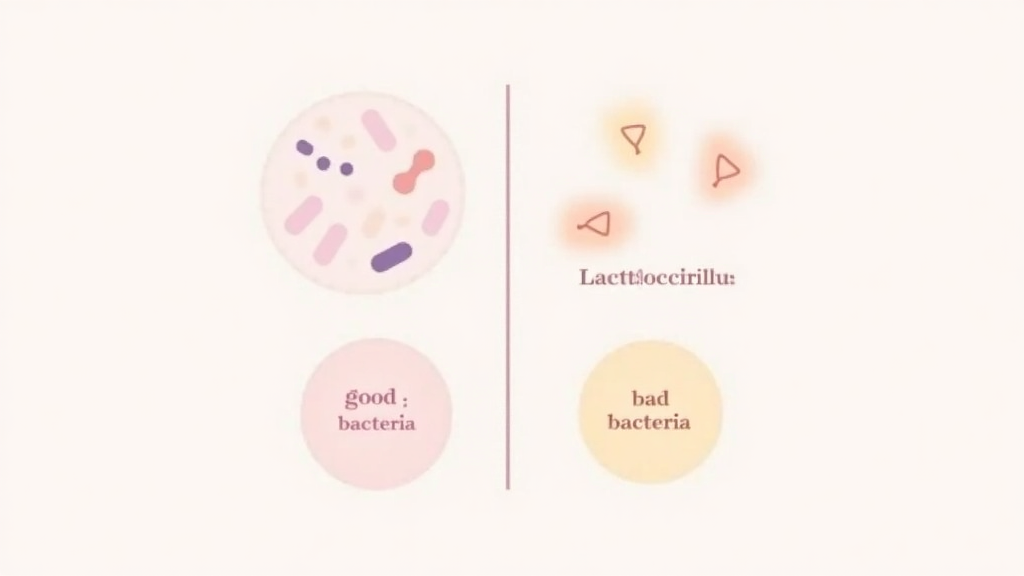Vaginal odor is a topic many women feel shy about, but it’s something nearly everyone will experience at some point. I’ve learned that understanding the difference between normal and abnormal vaginal odor makes a big difference in feeling confident and healthy. For anyone curious, there are lots of explanations behind what gives the vagina its unique scent and what to do if things change unexpectedly. I’ve explored the main causes, effective treatments, and helpful natural remedies, especially the roles of probiotics and Moringa, which I personally support and recommend to my friends and readers alike.

What is Vaginal Odor?
Everyone experiences some kind of vaginal odor. Usually, it’s quite mild and changes a little throughout the menstrual cycle. For example, I notice things might smell a little more metallic during menstruation, or slightly muskier after exercise. This is completely normal and part of how the body works. Healthy vaginal odor is often described as slightly tangy or musky, a result of the natural balance between good bacteria and the body’s pH.
Sometimes, though, there are changes that can seem concerning. Odors that smell fishy, rotten, overly sweet, or bread like often point to a switch in the vaginal environment. Anything accompanied by itching, burning, or unusual discharge is worth paying attention to because that often means the balance of good and bad bacteria has mixed up.
- Normal odors: Tangy, slightly sweet, or musky. Most people describe the scent as mild.
- Abnormal odors: Fishy (possible bacterial imbalance), yeasty or bread like (potential yeast overgrowth), or foul like decay (possible infection or forgotten tampon).
Knowing this difference really helps me keep track of my own health and know when it’s time to give my doctor a call. Plus, talking to friends and reading up on women’s health forums has built my confidence to ask questions and seek answers when something doesn’t seem right.
Common Causes of Vaginal Odor
The causes behind changes in vaginal odor can be pretty straightforward or a little more complicated. Here’s what I often hear about from others, as well as some experiences of my own: Cause Description, Bacterial Vaginosis (BV): Happens when bad bacteria grow and overpower the good kind (usually Lactobacillus), often resulting in a fishy odor. Yeast Infections: Caused by an overgrowth of Candida yeast, can cause a sweet, bread like, or beer like odor. Poor Hygiene. Not washing regularly, using harsh soaps, wearing wet or tight clothing can trap sweat and bacteria, leading to odor. Hormonal Changes: Big switch ups during menstruation, pregnancy, or menopause can make the scent stronger or different. Diet & Lifestyle: Foods like garlic, onions, and even coffee can influence vaginal odor. Dehydration and long-term stress can also have an effect.
For me, making small changes, like swapping to breathable underwear or adjusting my diet, has helped keep a neutral scent more often. Sometimes, just adding in an extra glass of water or avoiding tight jeans has made a difference that I didn’t expect. I also noticed that after workouts, taking a quick shower helps cut down on unwanted scent. Little habits can add up.
When Is Odor a Sign of a Problem?
Most of the time, changes in vaginal odor are temporary and nothing to worry about. I always remind myself that it’s time to reach out to a health professional if I notice:
- Persistent fishy, rotten, or foul smell
- Discharge that looks gray, yellow, green, or chunky
- Itching, burning, swelling, or redness around the vulva
- Burning sensation or pain during urination or sex
These signs could mean bacterial vaginosis, a yeast infection, trichomoniasis, or even a forgotten tampon. I find that checking my symptoms against lists like the one above helps me decide if I can try an at home remedy or if a doctor’s visit is the smarter choice. Don’t hesitate to check in with your healthcare provider—you deserve peace of mind and effective treatment.

Probiotics for Vaginal Health
Probiotics are one of my favorite ways to keep my vaginal microbiome in balance. I used to think probiotics were just for gut health, but it turns out that certain strains, like Lactobacillus rhamnosus GR-1 and Lactobacillus reuteri RC-14, specifically support vaginal wellness. These are often included in supplements aimed at women’s health.
I’ve found probiotics helpful in these ways:
- Support a healthy vaginal pH (between 3.8 and 4.5), where good bacteria thrive
- Help crowd out odor causing, harmful bacteria
- Reduce recurrence of BV and yeast infections
- Support the immune system, so it’s easier to fight off minor infections
Recommended product: Probiotic Capsules. Contains 30 billion CFUs per serving with targeted strains for vaginal health. I love that they’re vegan and gluten free, which fits my lifestyle.
🩺 Treatment Options
Treatment depends on what’s truly causing the odor. From experience, using the right remedy at the right time makes a significant difference. Here’s what works best in different situations:
Treatment Best For
Antibiotics (like Metronidazole) Bacterial vaginosis (BV)
Antifungal medications (like Fluconazole) Yeast infections
Daily probiotics Prevention, maintaining overall balance, and reducing
the chance of recurrence
Moringa supplements Immune and hormonal support
Natural remedies (e.g., apple cider vinegar
baths, plain yogurt topicals) Gentle cleansing and pH balance
Moringa’s Role in Vaginal Wellness
Moringa is getting more popular in natural wellness, and for good reason. While it doesn’t directly treat odor, the nutrients and plant compounds in Moringa help the body stay healthy overall. When my immune system is strong and inflammation is kept low, my vaginal health often feels more balanced too.
- Contains antimicrobial compounds that can help lower infections
- Rich in vitamin C and iron, both of which support strong immune function
- Helps balance hormones, supporting regular cycles and comfort during menopause
- Reduces inflammation, which limits redness and irritation
Recommended product: Organic Moringa Capsules. I use these in my routine for immune support and to help my body better handle daily stressors. Look for cold pressed varieties since they hang onto more nutrients.

If you’re unsure about what’s causing the odor, I recommend speaking to a doctor before starting medication. Home remedies can work for mild cases, but for stubborn infections or ongoing problems, professional help is the way to go. I always say it’s better to be safe and check in than to guess and wait.
Lifestyle & Hygiene Tips
Most of the changes that have kept me comfortable over the years are really about simple hygiene and lifestyle tweaks. Here are the ones I find most effective and easy to stick with:
- Wash with just water (mild, unscented soap on the vulva is okay; avoid douching inside the vagina at all costs, since that can mess up healthy bacteria)
- Choose breathable cotton underwear and change them daily
- Change out of sweaty or wet clothes as soon as possible
- Stay hydrated, since dryness can make feminine odor stronger
- Eat probiotic rich foods (like yogurt and kefir) and prebiotic foods (like garlic and bananas) to feed healthy bacteria
- Manage stress with rest, gentle exercise, or meditation. Stress can switch up your hormones and make your body more prone to infection.
I’ve noticed these habits help me feel fresh throughout the day, especially on busy or active days. They’re easy to add into any routine, and after a while they just become second nature.
FAQs
Here are some of the common questions I’ve gotten from readers and friends about vaginal odor and overall wellness:
Q: Can probiotics cure vaginal odor?
A: Probiotics can help restore and keep a healthy balance, which supports normal odor, but they should not take the place of antibiotics or antifungals when infections are present. Always check with a healthcare provider for ongoing problems.
Q: Is Moringa safe for vaginal health?
A: Yes, most people can use Moringa safely, and it has benefits for the immune system and hormone balance. If you have specific allergies or health conditions, check in with your doctor first.
Q: How long does it take for probiotics to work for vaginal odor?
A: Many women see improvements in two to four weeks, but it can take longer if the vaginal flora was badly disrupted. Being consistent really matters.
My Recommendations for Natural Vaginal Wellness
Managing vaginal odor is easier when I understand what’s normal for me, spot changes early, and have good natural support in my routine. Probiotics and Moringa play a big role in how I keep things balanced. If you’re looking for a simple way to support vaginal health, I strongly recommend Probiotic Capsules and Organic Moringa Capsules as part of your daily routine. These small steps make a huge impact on my confidence and comfort.
For more women’s health tips and trusted product reviews, check out my health blog and track down how natural approaches can help you stay your healthiest self. Remember, every woman’s body is a little different, and it’s perfectly okay to ask questions and try new routines until you find what works best for you.
Click the link below to access my recommended Probiotic and Moringa capsules:
Capsule Form [ here] Garden of Life Dr. Formulated Women’s Probiotics
Capsule Form [here] Seed DS-01 Daily Synbiotic
Capsule Form [ here] Culturelle Women’s Healthy Balance
“Here is a little transparency: Our website contains affiliate links. This means if you make a purchase, we may receive a small commission. Don’t worry, there is no extra cost to you. It’s a simple way you can support our mission to bring you quality content”
